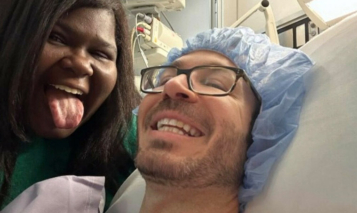
A rare lung infection that affects affluent older white women has doctors stumped. The infection is called Nontuberculous Mycobacteria or NTM for short.
The lung infection, similar to tuberculosis, is caused by a bacteria that is found in water, soil, and in the air.
Even though the bacteria is everywhere, it seems to affect only Caucasian, post-menopausal women who are thin and physically fit.
The infection is found in clusters of affluent old money areas such as Philadelphia’s Main Line and south Florida.
“This is being researched very intensively right now,” says Dr. Leah Lande, a pulmonologist at Lankenau Medical Center in Wynnewood, Pennsylvania.
Dr Lande says she has treated about 100 patients with the lung infection.
“This is in all of our water,” says Dr. Lande. “We are exposed to it everyday when we take a shower.”
Dr. Lande says mycobacteria can be especially dangerous when it’s aerosolized in the shower or expelled into the air from a humidifier.
The symptoms of NTM include a cough and fatigue (feeling extremely tired).
54-year-old Karen McCarthy was diagnosed with NTM in May after she suffered from fatigue and a chronic cough.
McCarthy is taking antibiotics until next September to rid her lungs of the infection. Standard treatment for tuberculosis is 6 months on antibiotics.
McCarthy says she was shocked to learn that being physically fit and drinking lots of water may have contributed to her infection.
She installed a water filtration system in her home to prevent reoccurrence of the disease.
“You’re thinking, have you hurt yourself by drinking water,” says McCarthy.
Doctors say black people and people who are overweight are resistant to the infection.
It is not known why the mycobacteria only infects a certain race and class of people.
“A lot of people are trying to figure that out now but that’s not really understood right now,” says Dr. Lande.
At least one person in Florida died after contracting NTM.
Drinking bottled water does not provide protection from the infection.
Aqua Pennsylvania, which supplies bottled water to the Philadelphia area, says there is no EPA-approved method to measure the bacteria in city water.
All bottled water companies get their water from municipal water supply.





